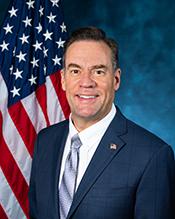9
To amend the Aquifer Recharge Flexibility Act to clarify a provision relating to conveyances for aquifer recharge purposes.
6/11/2025, 7:53 PM
Summary of Bill HR 331
The Aquifer Recharge Flexibility Act was originally passed to promote the recharge of aquifers, which are underground layers of rock or sediment that hold water. Aquifer recharge is important for maintaining water supplies and preventing depletion of groundwater resources. The act allows for the use of conveyances, such as pipelines or canals, to transport water for recharge purposes.
However, there has been confusion and ambiguity surrounding the definition and regulation of these conveyances. Bill 119 hr 331 seeks to address this issue by clarifying the language in the original act to ensure that conveyances used for aquifer recharge are properly managed and monitored. Overall, the goal of this bill is to improve the effectiveness of aquifer recharge efforts and ensure that groundwater resources are protected for future generations. It is an important piece of legislation that aims to address a specific issue within the broader context of water resource management in the United States.
Congressional Summary of HR 331
This bill modifies the Aquifer Recharge Flexibility Act to expand provisions concerning authorizations (e.g., rights-of-way) to transport water across public land administered by the Bureau of Land Management (BLM) for aquifer recharge purposes.
Under the Aquifer Recharge Flexibility Act, the holder of existing rights-of-way, easements, permits, or other authorizations to transport water across BLM land may transport the water for aquifer recharge purposes without additional authorization from the Department of the Interior so long as the use does not expand or modify the operation of such authorizations across public land.
The bill allows the holders of such authorizations to act not only on behalf of themselves, but also on behalf of states, Indian Tribes, or public entities, to use the existing authorizations for aquifer recharge without additional authorization from the Department of the Interior. Further, the bill states that this use may not be considered an expansion, modification, major federal action, or substantial deviation.
Additionally, the bill exempts holders from paying additional rents to the BLM for any use of such authorizations; however, the exemption does not apply to for-profit uses of aquifer recharge or for-profit entities.
Finally, holders of rights-of-way or other authorizations must provide notice to the BLM of the intended use of authorization as specified by the bill.
Read the Full Bill
Current Status of Bill HR 331
Bipartisan Support of Bill HR 331
Total Number of Sponsors
14Democrat Sponsors
0Republican Sponsors
14Unaffiliated Sponsors
0Total Number of Cosponsors
1Democrat Cosponsors
0Republican Cosponsors
1Unaffiliated Cosponsors
0Policy Area and Potential Impact of Bill HR 331
Primary Policy Focus
Water Resources DevelopmentAlternate Title(s) of Bill HR 331
Comments

Ryan Pate
9 months ago
I support it, good job!

